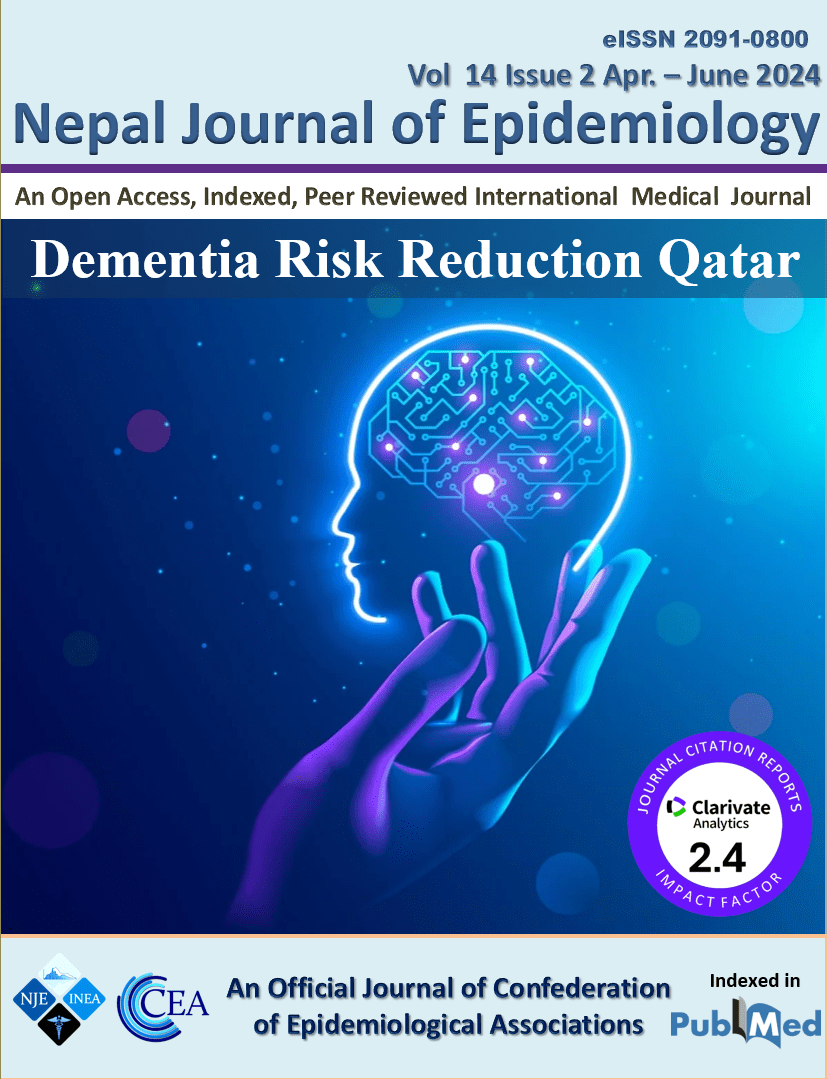Identifying Dementia research priority for Qatar national dementia research plan: A Cross-sectional Survey
DOI:
https://doi.org/10.3126/nje.v14i2.69363Keywords:
Demetia Research Priority, Dementia Risk Reduction, World Health Organization, Dementia, QatarAbstract
Background: The World Health Organization (WHO) published the Global Action Plan 2017-2025 seven years ago to address the dementia burden for those impacted, including persons living with dementia, their families, and health-care providers. There were seven action areas in the global action plan; the least achieved was action area seven (dementia research and innovation). The primary objective of the study was to assess the top 10 dementia research priorities among healthcare professionals, patients, caregivers, the public, and stakeholders to develop the Qatar National Dementia Research Plan.
Methods: Convenience sampling was used in this cross-sectional survey. The study was conducted online with the involvement of HMC staff (physicians, nurses, and allied health staff) from all HMC facilities, patients and caregivers from Rumailah Hospital's Geriatric Department, and the public who attended the 2022 Advanced Dementia Research Conference. The survey was conducted during 22nd of October 2022 till April 31, 2024. Overall, 2000 participants provided their responses, which included health care professionals under HMC, including physicians, nurses, allied health staff, patients, caregivers, the public, and stakeholders in Qatar.
Results: Dementia Risk Reduction (79%) was the top priority for the survey participants. The remaining nine priorities were the impact of early treatment (76%), health system capacity (73%), implementation of best practices for care (73), access to information and services post-diagnosis (71), caregiver support (70%), emotional well-being (67%), care provider education (65%), end-of-life care (65%), and non-drug approaches to managing symptoms (65%).
Conclusion: The survey results clearly indicated that most participants ranked Dementia Risk Reduction as their top priority, indicating the essential focus on dementia prevention. These findings, together with goals such as early treatment, healthcare system capacity, and caregiver support, highlight the importance of an integrated, multidisciplinary approach to dementia management.
Downloads
Downloads
Published
How to Cite
Issue
Section
License
Copyright (c) 2024 CEA & INEA

This work is licensed under a Creative Commons Attribution 4.0 International License.
- Upon acceptance Copyright on any research article is transferred in full to the Confederation of Epidemiological Associations (CEA) and International Nepal Epidemiological Association (INEA). The copyright transfer includes the right to reproduce and distribute the article in any form of reproduction (printing, electronic media or any other form).
- Articles in the Nepal Journal of Epidemiology are Open Access articles published under the Creative Commons CC BY License (https://creativecommons.org/licenses/by/4.0/)
- This license permits use, distribution and reproduction in any medium, provided the original work is properly cited.




